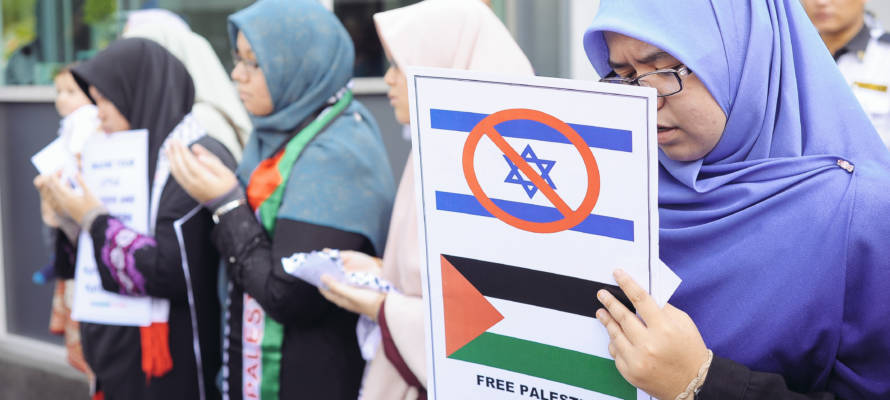The new anti-Semitism, targeting the State of Israel, “is just a cleverly repackaged form of hatred against the Jewish people,” US Ambassador to Israel David Friedman told the 6th Global Forum on Combating Antisemitism in Jerusalem Sunday night.
By: Benjamin Kerstein, The Algemeiner
US Ambassador to Israel David Friedman told a packed house at the opening of the 6th Global Forum on Combating Antisemitism that a “new” antisemitism, characterized by “the irrational, deceitful, and insidious vilification of Israel and its supporters under the guise of political commentary” worries him far more than the “old” antisemitism.
Friedman spoke on behalf of President Donald Trump and his administration at the International Convention Center in Jerusalem, telling the audience that “combating” antisemitism is “the right verb.”
“Usually when we speak about efforts to end a disease—and make no mistake about it, antisemitism is a disease, it is a virulent disease—we speak about eradicating it,” he said. “But we don’t speak about eradicating antisemitism and I think that’s probably the right approach. Eradication is probably a bridge too far.”
Citing the passage in the Passover Haggadah that states “in every generation they rise up against us,” Friedman noted, “The authors of the Haggadah did not see antisemitism as capable of being eradicated some 2,000 years ago. And regrettably, today, neither do I. … But combating it is something we can do. It is a sacred responsibility we inherited from our parents and something we must leave to our children.”
Friedman, however, sought to differentiate between what he called the “old” antisemitism and the “new.”
Threat of the Internet
Recounting how the American town of Bal Harbour once barred Jewish residents, Friedman said, “I wish I could say the old antisemitism is a thing of the past,” but “with the internet, the old antisemitism has a distribution channel that the old antisemites … could only have dreamed of. … I worry about the old antisemitism, but I never doubt that we will prevail in our fight against it.”
This “old” antisemitism, however, has been superseded. “The new antisemitism worries me a bit more,” Friedman said. “It is the irrational, deceitful, and insidious vilification of Israel and its supporters under the guise of political commentary. It is just a cleverly repackaged form of hatred against the Jewish people.”
Friedman also asserted that this new antisemitism is acceptable in polite society in a way the old antisemitism is not.
“There are places in Manhattan—where I worked for 35 years—where if you attended a cocktail party and said ‘I hate Jews,’ then you would be politely escorted to the door,” he stated. “But if you said, ‘Isn’t it a shame that after Jews survived the Holocaust, they turned into Nazis themselves against the Palestinians,’ if you said that, you might be offered another drink and invited to hold court on your interesting point of view.”
Ultimately, Friedman said, “To accuse Israel of Nazism, apartheid, or institutional bigotry because of well-intentioned, good faith efforts to protect its inhabitants against terrorism is to be an antisemite, plain and simple.”
Epicenter of New Anti-Semitism is in Academia
In the US, Friedman continued, the epicenter of this new antisemitism is in academia. “I think now, our biggest issue in regard to the United States with antisemitism is on college campuses,” he stated. “Pro-Israel students are under siege. Pro-Israel professors are not getting tenure.”
He recounted an anecdote about a debate at Columbia University with anti-Zionist intellectual Edward Said, saying, “the conversation was respectful, it was civil, and it was thoughtful.” In 2007, then-Iranian president Mahmoud Ahmedinejad—an openly genocidal antisemite—was invited to speak at Columbia, where “he was treated respectfully, far more so than Israeli speakers.”
In 2017, Friedman noted, Israel’s ambassador to the UN Danny Danon, “hardly a controversial figure in Israeli politics, was shouted down when he addressed the students of Columbia. … And you can multiply that by colleges and universities throughout the United States.”
“We never want to interfere with academic freedom,” Friedman said, “but we must bring an end to academic hypocrisy.”
The ambassador concluded by hailing President Trump’s decision to recognize Jerusalem as Israel’s capital, calling it “a shot right through the heart of the new antisemitism. And let’s hope it is just the beginning.”
